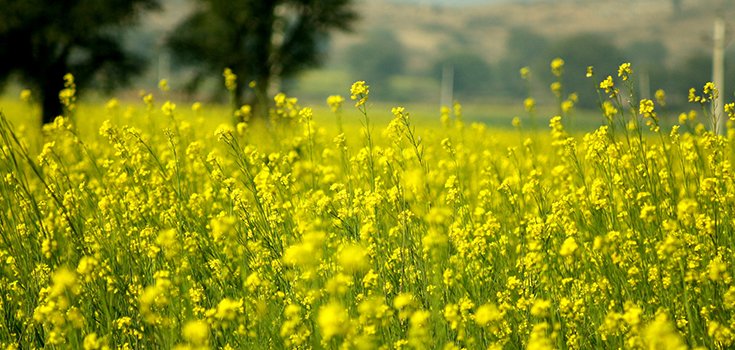Genetically Modified Mustard? Biotech Makes more Questionable Claims

The biotech industry doesn’t want farmers to have that “a-ha moment,” the sudden realization that it could have saved themselves a truckload by purchasing non-genetically modified (non-GM) seed. It turns out non-GM mustard seed performs just as well as genetically modified mustard seed, which is promoted by the industry as ‘higher performing.’ What’s more, the industry’s claims that biotech seed is better than non-GM seed were based on fraud.
The Coalition for GM-Free India and an ex-scientist from Bhabha Atomic Research Centre state that GM mustard’s yield does not perform better than currently available non-GM varieties and hybrids. During trials, the GM varieties were compared with weaker and older non-GM hybrids. The data was purposefully skewed to show that GM crops were better.
Former Delhi University vice-chancellor Deepak Pental helped to develop the GM Mustard crop with National Dairy Development Board funding. He has refuted the allegations made by the coalition.
The GM mustard is said to perform up to 25% better, but that may not really be the case. According to Sharad Pawar, a former consultant working with the NDDB and an ex-scientist working with Bhabha Atomic Research Centre, non-GM varieties (such as NRCHB-506, Coral-437, and DMH-1) are equally good. What’s more, they have already been commercialized and are cost effective.
The environment industry is pausing before unleashing the crop, asking for more bio-safety data.
Related: Thousands of Farmers in India Rise up Against Monsanto
According to data provided by the Coalition and Pawar, the comparison of GM mustard yield between 2009 and 2014 in the zonal checks was done with varieties that were discontinued as per protocol.
Furthermore, if another GM crop is unleashed in India, it could have dire consequences. GM Bt cotton has already infiltrated as much as 90 percent of all cotton grown in the country.
Pental calls the claims, “baseless,” but the biotech industry has made false claims about GM seed yields before. Failure to yield details the overall yields of GE crops after more than 20 years of research and 13 years of commercialization in the United States. According to the definitive UCS study, “GE has done little to increase overall crop yields.”
Source:
